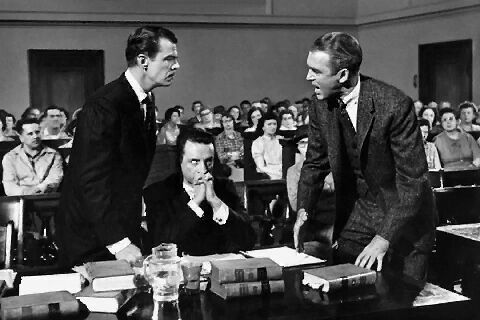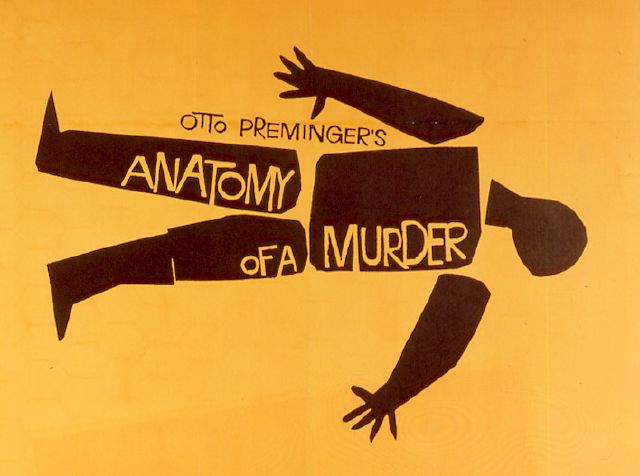
Turner Classic Movies is broadcasting Anatomy of a Murder on July 27. I love this film for its great courtroom scene, for the great performances by James Stewart, George C. Scott, Ben Gazzara and Lee Remick, and for its exquisite pacing by director Otto Preminger.
Jimmy Stewart plays a lawyer who has exiled himself to the remote Upper Peninsula of Michigan precisely to avoid the high-pressured rat race by settling into a leisurely rural practice. But circumstances force him into an all-consuming, high-stakes trial. It’s a murder case, and he must defend a hot-tempered soldier who has killed a local businessman. The defendant is not sympathetic (Ben Gazzara at his most smoldering). The defense – rage at the rape of his wife – rests on whether there WAS a rape, and the wife (a sizzling Lee Remick) isn’t an ideal witness, either. The local DA brings in a hotshot, big city prosecutor (George C. Scott) to nail down the conviction.
You take your clients and facts as you find them, and this makes for a gripping courtroom battle. The canny local lawyer pulls out all the stops. The cynical ending plants Anatomy of a Murder firmly into the film noir/neo-noir genre.
The supporting performances, especial Arthur O’Connell and Eve Arden as Jimmy’s team, are remarkably good.
The prolific character actor Murray Hamilton plays Al the bartender, and this is my favorite Murray Hamilton performance. Hamilton is best known for his performances as Mr. Robinson in The Graduate and as the mayor in Jaws. Here, his line reading of “bare-legged” practically cries ” SLUT SLUT SLUT”.
Real-life lawyer Joseph Welch plays the judge. In the televised McCarthy hearings, Welch emasculated the bullying Joseph McCarthy with “Have you no sense of decency, sir? At long last, have you left no sense of decency?“
I also recommend Anatomy of a Murder for its great jazz soundtrack by none other than Duke Ellington. It’s one of the few movie soundtrack CDs that I own. The music perfectly complements the story of a murder investigation that reveals more and more ambiguity as it proceeds. Stewart’s character relaxes by dabbling in jazz piano, and Duke himself has a cameo leading a bar band in the Upper Peninsula of Michigan (of all places).

